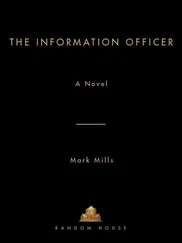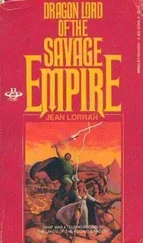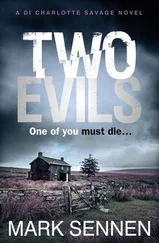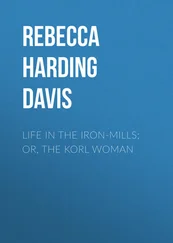Mark Mills - The Savage Garden
Здесь есть возможность читать онлайн «Mark Mills - The Savage Garden» — ознакомительный отрывок электронной книги совершенно бесплатно, а после прочтения отрывка купить полную версию. В некоторых случаях можно слушать аудио, скачать через торрент в формате fb2 и присутствует краткое содержание. Жанр: Старинная литература, на английском языке. Описание произведения, (предисловие) а так же отзывы посетителей доступны на портале библиотеки ЛибКат.
- Название:The Savage Garden
- Автор:
- Жанр:
- Год:неизвестен
- ISBN:нет данных
- Рейтинг книги:4 / 5. Голосов: 1
-
Избранное:Добавить в избранное
- Отзывы:
-
Ваша оценка:
- 80
- 1
- 2
- 3
- 4
- 5
The Savage Garden: краткое содержание, описание и аннотация
Предлагаем к чтению аннотацию, описание, краткое содержание или предисловие (зависит от того, что написал сам автор книги «The Savage Garden»). Если вы не нашли необходимую информацию о книге — напишите в комментариях, мы постараемся отыскать её.
The Savage Garden — читать онлайн ознакомительный отрывок
Ниже представлен текст книги, разбитый по страницам. Система сохранения места последней прочитанной страницы, позволяет с удобством читать онлайн бесплатно книгу «The Savage Garden», без необходимости каждый раз заново искать на чём Вы остановились. Поставьте закладку, и сможете в любой момент перейти на страницу, на которой закончили чтение.
Интервал:
Закладка:
No Finn Duggan this time, thankfully, but Harry required maintenance, supervision even. And Adam had enough on his mind already.
For a brief while it had all seemed so clear: switching the subject of his thesis from the memorial garden to Villa Docci itself. But that was before he'd stepped through the breach in the yew hedge.
Even now he couldn't say just why the place had affected him so much. All he could point to was a vague sensation of having been momentarily transported somewhere else, a parallel world, unquestionably beautiful but also disquieting.
No doubt the unassuming entrance was intended to produce the effect of stumbling upon a lost Arcadia, but there was something illicit in the act of pushing your way through a hedge that smacked of trespass, each subsequent step in some way forbidden. This sense of intruding was reinforced by the personal nature of what lay beyond the hedge: the touching tribute of a grieving husband to his deceased wife. The other Renaissance gardens Adam had studied in preparation for his trip were far grander stages on which the most high-blown ideas of the age were played out—Man and Nature in uneasy coexistence; Man imposing himself on Nature, molding her to his own ends, yet constantly fighting her hold over him, struggling to rise above his baser instincts to the role ordained for him by God.
Not that God or any other Christian imagery figured in the elaborate cycles set out by wealthy Romans and Florentines in the grounds of their country estates. The language of the garden was purely pagan, its world a mythical earthly paradise populated with marble gods and demigods and other outlandish creatures from Greek and Roman legend, where water gushed from Mount Parnassus, pouring along channels, tumbling over waterfalls, spraying from fountains and trickling down the rough-hewn walls of woodland grottoes.
The memorial garden at Villa Docci sat firmly within this tradition, and although it couldn't match its eminent counterparts at Villa di Castello, Villa Gamberaia and Villa Campi for sheer size and grandiosity, it stood out for its human dimension, its purity of purpose, the haunting message of love and loss enshrined in its buildings, inscriptions and groupings of statues buried away in the woods.
The hour or so Adam had spent strolling the circuit had intrigued him, unsettled him, whereas the villa itself had simply awed him with its serene perfection. The choice was no longer clear to him. Which of the two should he spend his time on?
This was the dilemma he'd been struggling with over dinner at the pensione when a bottle of red wine had landed on his table with a thud.
It was attached by a lean brown arm to a man whom Adam had noticed drinking alone at the bar. He was dark, rangy, handsome in a disheveled kind of way. He pushed his lank hair out of his eyes.
"Can I?" he asked in Italian, not waiting for a reply and dumping himself in the chair opposite. He glanced at the open file beside Adam's plate. "It's not good," he said.
"What?"
"Reading and eating at the same time. The stomach needs blood for digestion. When you read, the brain steals the blood."
"Really?"
"It's what my father used to say, but he was an idiot, so who knows? I'm Fausto."
Adam shook the strong hand offered him. "Adam."
"Can I?" Fausto helped himself from Adam's pack, tearing off the filter before lighting the cigarette. "You're English?"
"Yes."
"I like the English," declared Fausto, sitting back in his chair and plucking a stray shard of tobacco from his tongue. "London Liverpool Manchester A-stings."
"A-stings?"
"The Battle of A-stings."
"Oh, Hastings."
"A-stings. Exactly," said Fausto, not altogether happy about being corrected, although it didn't stop him from filling Adam's glass from the bottle of red wine he'd arrived with.
Adam took a sip.
"What do you think?"
Adam knew the word for "drinkable" in Italian. So presumably "undrinkable" was "non potabile."
"Excellent," he replied.
Fausto smiled. "That's why I like you English. You're so fucking polite."
Fausto, it turned out, had done his homework. He knew from Signora Fanelli the purpose of Adam's visit, and even its intended duration. Not that that was saying much—everyone did, tourists being something of a rarity in San Casciano. Apparently, the last foreign visitors of any note had been a bunch of New Zealanders— the ones who'd liberated the town from the Germans back in 1944. Fausto described in elaborate detail, much of it lost on Adam, the fierce siege that had laid waste to his birthplace—a sad inevitability given San Casciano's pivotal role in the main German line of defense south of Florence.
Despite this, Fausto seemed to harbor a grudging respect for the German military machine, which had so successfully slowed the Allied advance northward, mining bridges and roads, its troops fighting a relentless rearguard action against overwhelming odds, taking severe casualties but never losing their discipline or their fighting spirit, forever melting away, withholding their fire until you were right on them, and always ceasing fire at the first sign of the Red Cross.
Fausto was speaking from firsthand experience. He'd been a member of a partisan group who'd assisted the Allies in their push on Florence, fighting alongside the British when they entered the city, men from "London Liverpool Manchester."
And Hastings?
No, that was something else, Fausto explained—an interest in historic battles.
He was lying. He knew more about the Battle of Hastings than was healthy for any man to know. They were well into the third bottle of wine before Harold even got the arrow in the eye.
Fausto was enacting this event with a slender breadstick when Signora Fanelli appeared at the table.
"Fausto, leave him alone, look at him, he's half dead."
Fausto peered at Adam.
"Leave the poor boy alone. Go home. It's late," Signora Fanelli insisted, before returning to the bar.
"A beautiful woman," mused Fausto, helping himself to yet another of Adam's cigarettes.
"What happened to her husband?"
"The war. It was a bad thing."
"What?"
Fausto's dark eyes narrowed, as if judging Adam worthy of a response.
"We were fighting for our country. Our country. Against the Germans, yes, but also against each other—Communists, Socialists, Monarchists, Fascists. For the future. There was . . . confusion. Things happened. War permits it. It demands it." He drew on the cigarette and exhaled. "Giovanni Gentile. Do you know the name?"
"No."
"He was a philosopher. A thinker. Of the right. A Fascist. He had a house in Florence. They went to his door carrying books like students, carrying books to fool him. And then they shot him." He took a sip of wine. "When they start killing the men of ideas, you can be sure the Devil is laughing."
"Did you know them?" asked Adam.
"Who?"
"The ones who did it?"
"You ask a lot of questions."
"It's the first chance I've had."
Fausto cracked a smile and he laughed. "I talk too much, it's true."
"What?" called Signora Fanelli from across the room. "I don't see you for months and now I can't get rid of you?"
"I'm going, I'm going," said Fausto, holding up his hands in capitulation. Turning back to Adam, he leaned close. "Things can make sense at the time, but as you get older those consolations no longer help you sleep. It's the only thing I've learned. We all think we know the answer, and we're all wrong. Shit, I'm not sure we even know what the question is."
Adam drew his own consolation from the words: that Fausto was even more drunk than he was.
Fausto drained his glass and rose to his feet. "It's been a pleasure. You be careful up there at Villa Docci."
Читать дальшеИнтервал:
Закладка:
Похожие книги на «The Savage Garden»
Представляем Вашему вниманию похожие книги на «The Savage Garden» списком для выбора. Мы отобрали схожую по названию и смыслу литературу в надежде предоставить читателям больше вариантов отыскать новые, интересные, ещё непрочитанные произведения.
Обсуждение, отзывы о книге «The Savage Garden» и просто собственные мнения читателей. Оставьте ваши комментарии, напишите, что Вы думаете о произведении, его смысле или главных героях. Укажите что конкретно понравилось, а что нет, и почему Вы так считаете.











